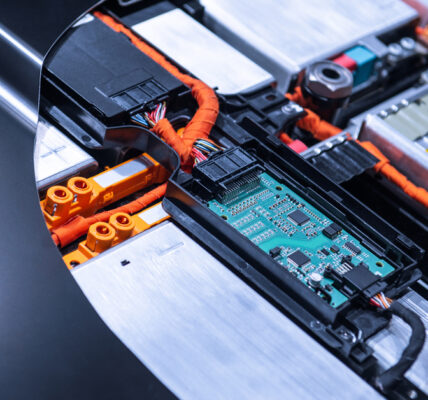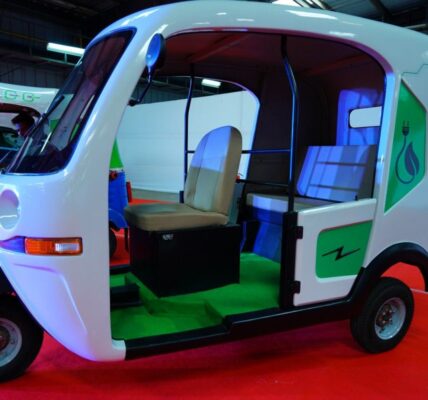Red tape is frustrating the efforts of Big Tech in China to launch electric vehicles, with car rollouts from search giant Baidu, smartphone maker Xiaomi and ride-hailing group Didi all being stalled. A stricter licensing regime is impacting the tech groups that have been latecomers to China’s EV boom. They are having difficulty securing regulatory approvals to begin making and selling their debut cars, according to six people close to the companies. “We have hundreds of engineers waiting around doing nothing,” said a staffer at one of the companies.
Public records show only two approvals for new electric car production since the start of the year. Industry insiders say regulators have tightened approvals to tackle growing overcapacity and a spate of EV company failures that left customers complaining of owning vehicles that could not be repaired or serviced. Eunice Lee, an auto analyst at Bernstein, estimates China now has the overall capacity to make close to 40mn vehicles a year and rising, but there is domestic demand for just 20mn to 25mn.
Several of the people close to the tech companies said they remained hopeful that regulators would soon relent, pointing to Chinese officials’ recent charm offensive to restore private sector confidence. But the carmaking rules enforced by China’s state planner and Ministry of Industry and Information Technology (MIIT) have already throttled the dreams of billion-dollar start-ups such as Niutron, backed by US investment group Coatue.
The start-up has been almost bankrupted and was forced to lay off most of its workforce after failing to obtain an EV production licence. Baidu’s electric vehicle arm Jidu has also delayed the launch of its Robo-01 model, despite pledges that deliveries would start in the third quarter. The search group partnered with carmaker Geely Holding to set up Jidu in 2021, with Baidu holding a majority stake and keen to make a vehicle that showcases its self-driving technology. The two groups have invested $1bn in the project and are working to raise another $400mn for Jidu as losses balloon in the run-up to full production at Geely’s Zhejiang car plant, according to documents seen by the FT. Staff at Jidu sales outlets in Beijing are now telling prospective customers the company will provide an update soon and deliver vehicles before the end of the year.
It is being held up by new MIIT rules that require both the marque and its contract manufacturer to have new energy vehicle production licences, according to two people close to the companies. Jidu had so far failed to obtain one and talks between Baidu and Geely were likely to lead to the latter taking a greater role in the partnership, the people said. “If Jidu would like to use Geely’s mass production credentials, Geely needs to at the very least hold a 50 per cent stake in the joint venture under normal circumstances,” said analyst Shi Ji at the brokerage CMB International.
Analysts point to a partnership between Huawei and carmaker Seres as a possible model to sidestep the regulations, with Huawei supplying technology and marketing know-how but having no direct stake in its partner. EV start-up Niutron has taken a similar route after failing to receive approval for its debut sport utility vehicle. In June, its carmaker partner Dorcen received MIIT approval to launch an SUV that closely resembles Niutron’s car, but without using its marque. Two former employees said Niutron remained involved as a supplier but could not have its name on the car. Even some of the existing leading EV makers are finding it difficult to obtain approvals.
Nasdaq-listed Nio, which took over a factory in the eastern city of Chuzhou earlier this year to make cars for its budget sub-brand code-named Firefly, and Xpeng, which has a new factory in Wuhan, are both waiting for licences, according to two people close to the companies. Recommended The Big Read The Chinese carmakers planning to shake up the European market Elsewhere, China’s ride-hailing leader Didi has been quietly pushing ahead with a car project known internally as Da Vinci, which involves taking a stake in heavily indebted state-backed automaker Guoji Zhijun and making cars at its plant in the Southeastern city of Ganzhou. But Didi’s name has yet to appear in MIIT’s monthly list of new approvals. Smartphone maker Xiaomi already has test cars rolling off production lines at its newly built factory complex on the outskirts of Beijing. Several workers leaving the plant told the FT they were ironing out final issues before starting mass production. “All the machines are in place, we’re almost ready,” said one worker, who asked not to be named.
Yet Xiaomi, which has pledged $10bn to the venture, has still not received permission from MIIT to start mass-producing vehicles. Chief executive Lei Jun has been lobbying top city officials to help ensure his group gains a production licence once held by Beijing Borgward, an EV maker that failed last year, according to two people close to the company. “The Beijing city government values us highly,” said one employee. “But this licensing issue has dragged on too long, everyone is asking about it internally, we’ve been hearing it’d be solved since the start of the year.”
Xiaomi has said it will start delivering vehicles in the first half of next year and did not respond to requests for comment. Baidu declined to comment. Jidu, Geely, Xpeng, Didi, Niutron, Coatue and Niu did not respond to requests for comment.








